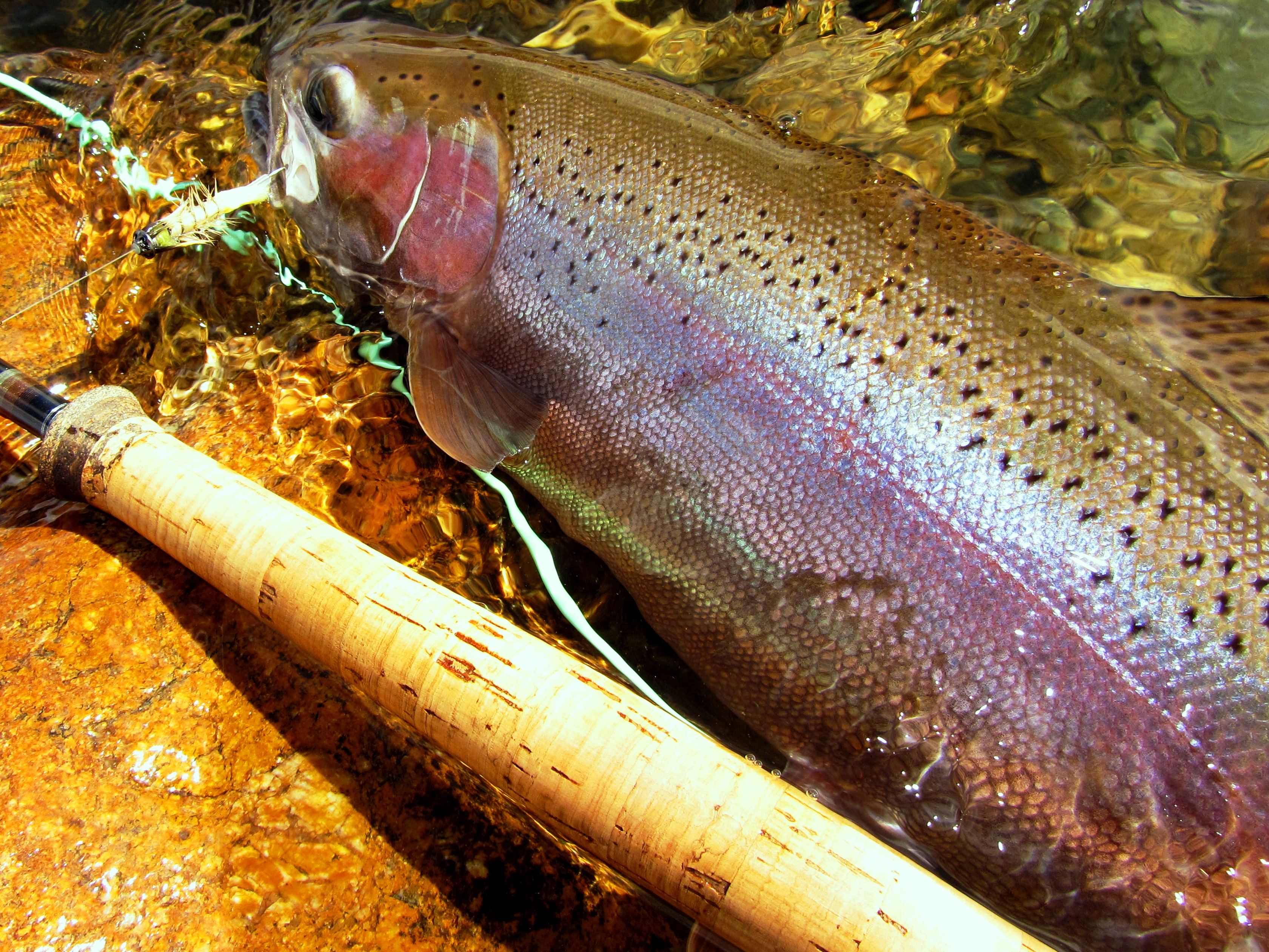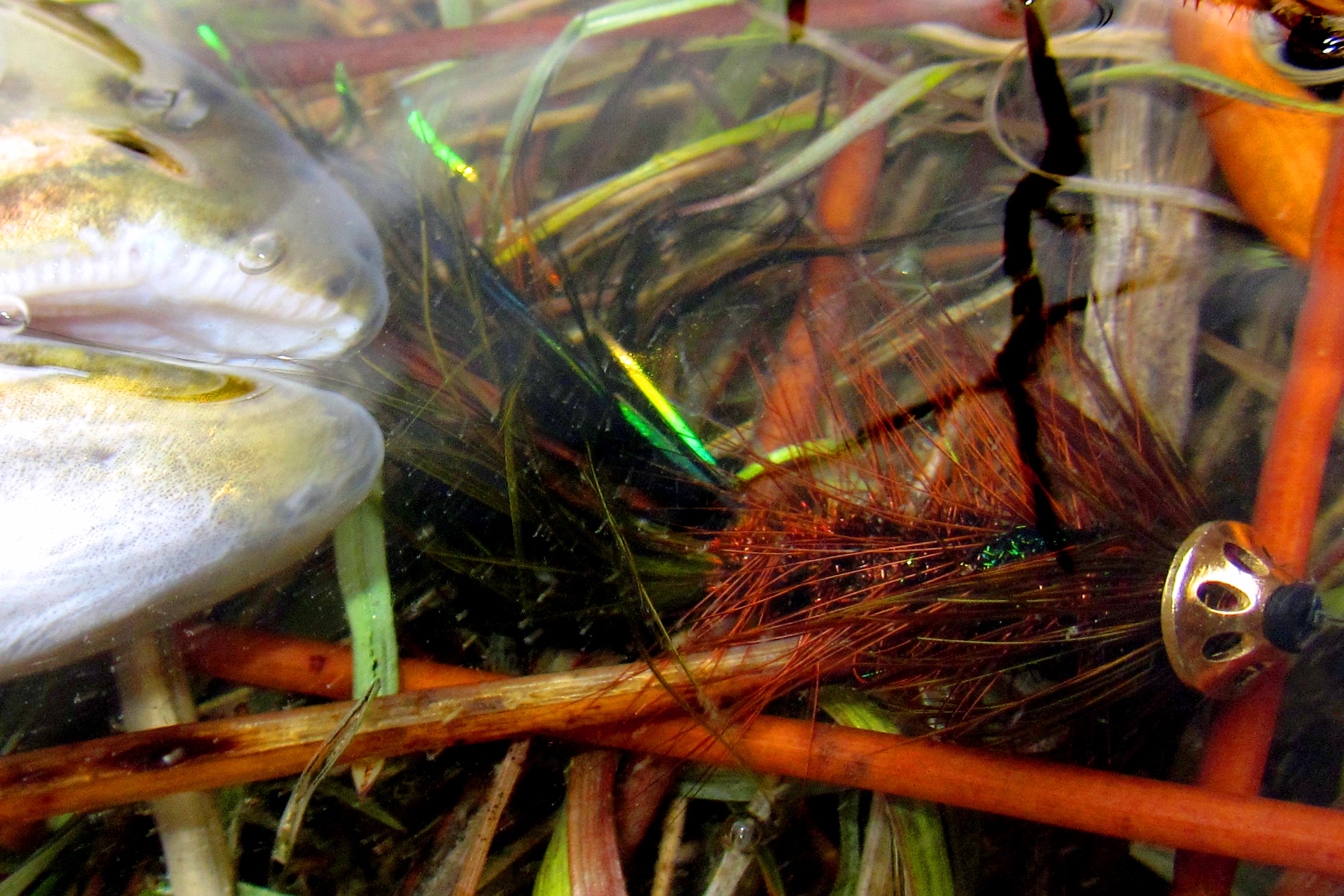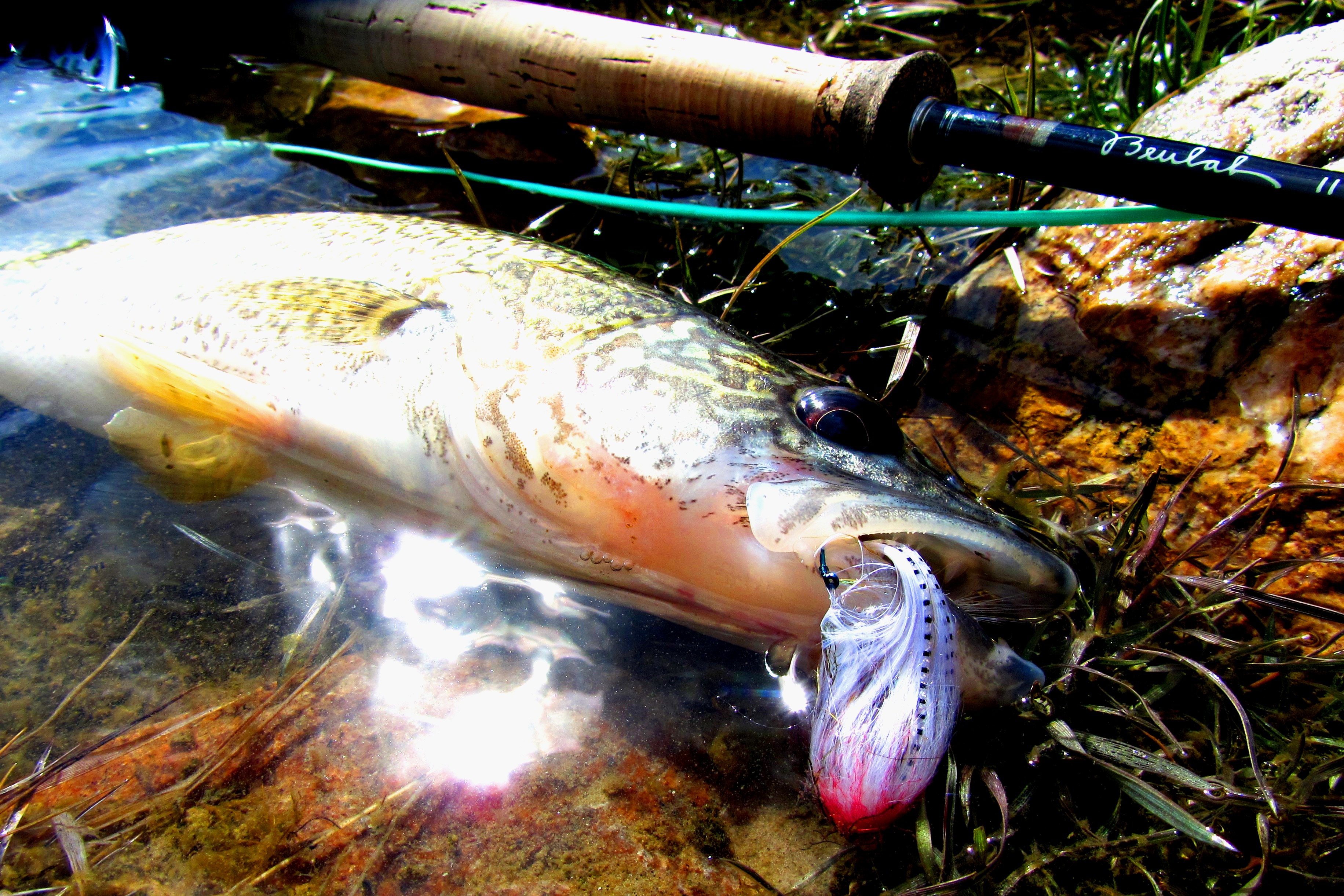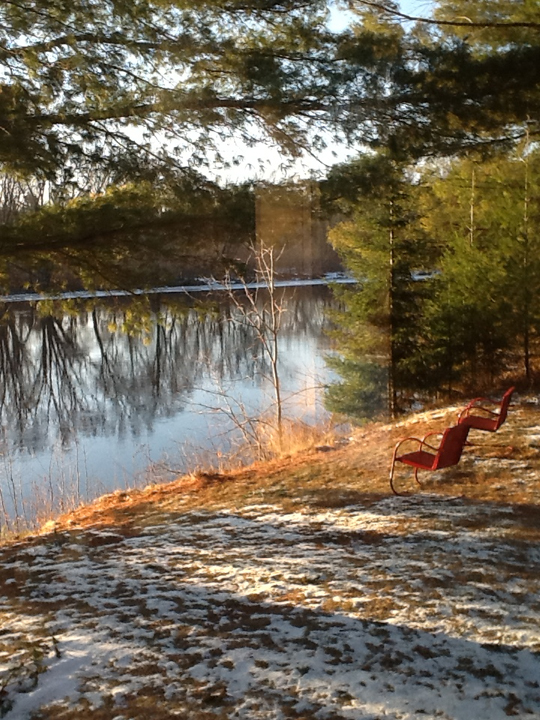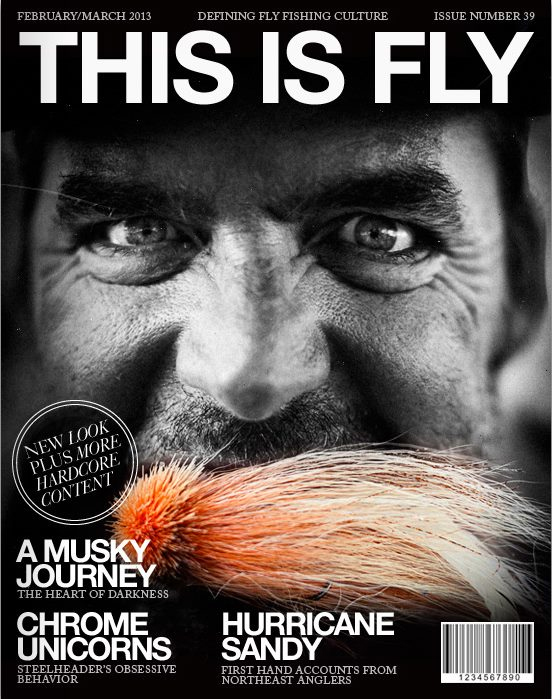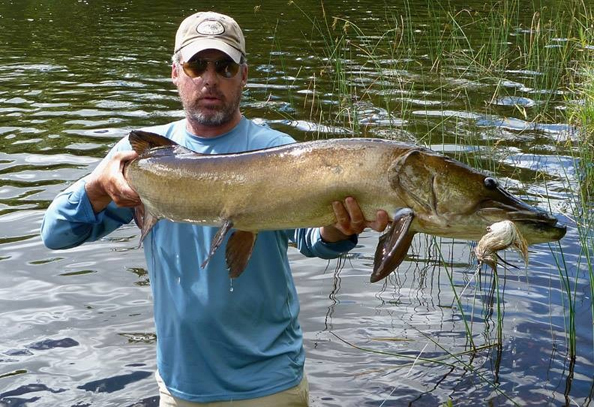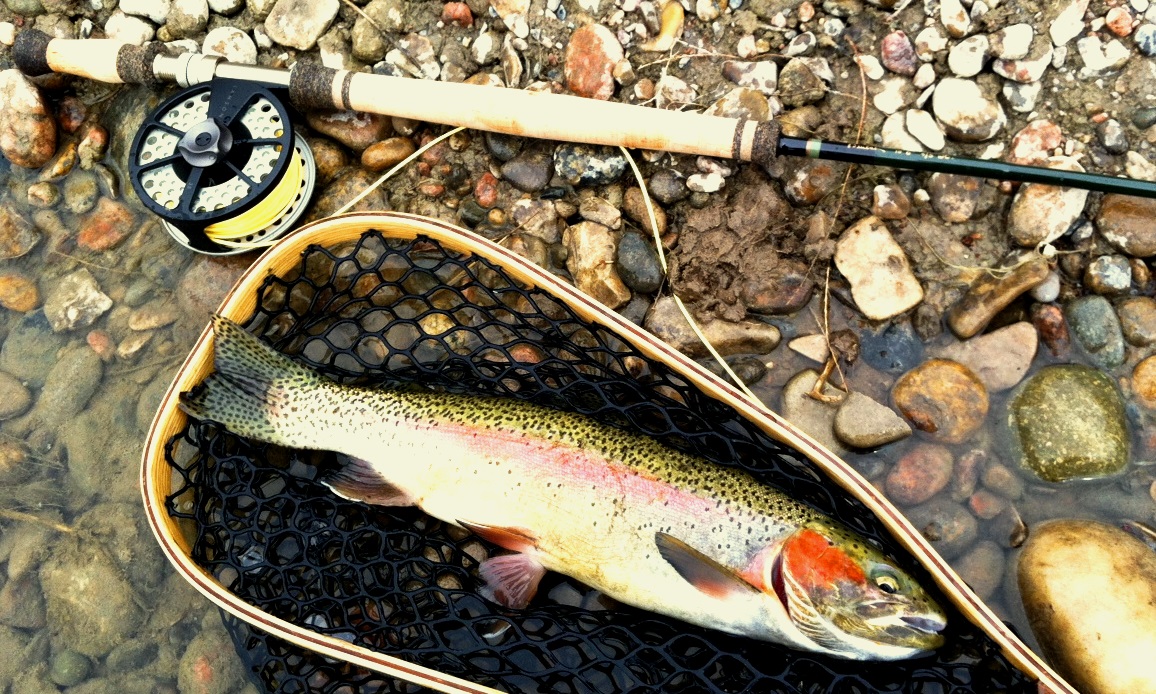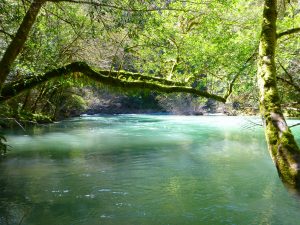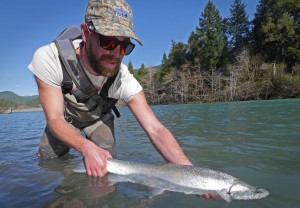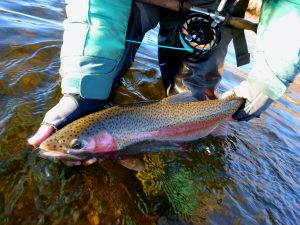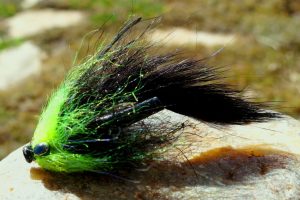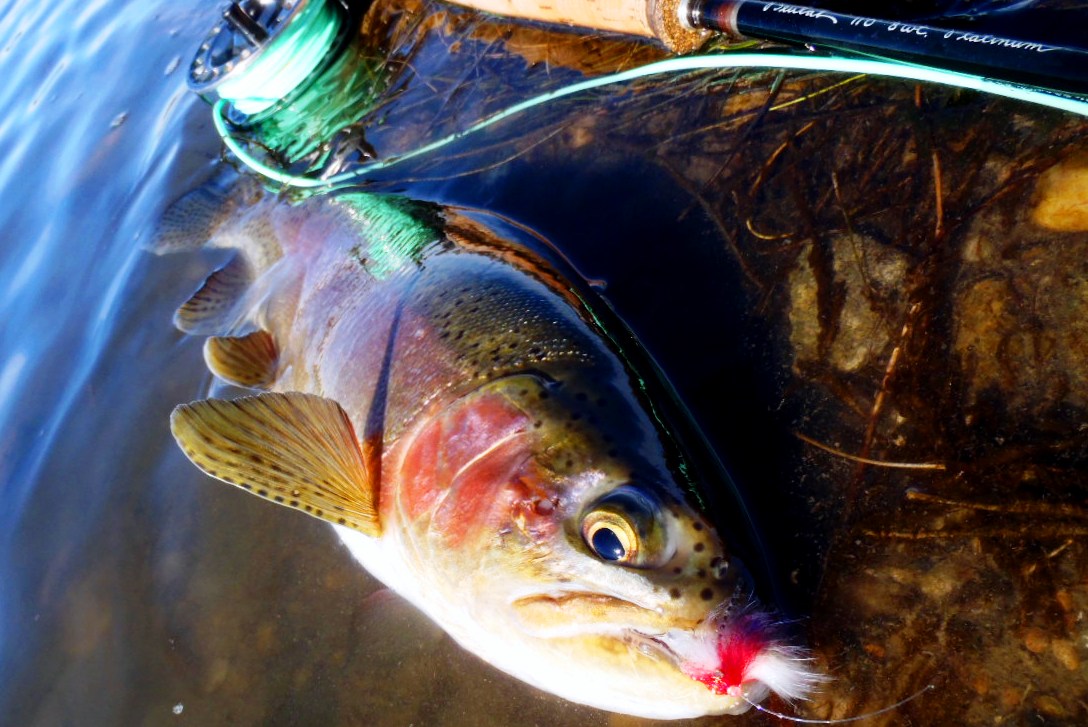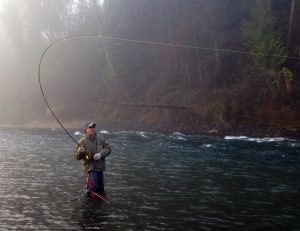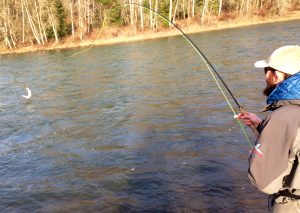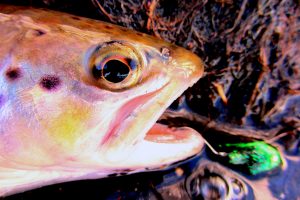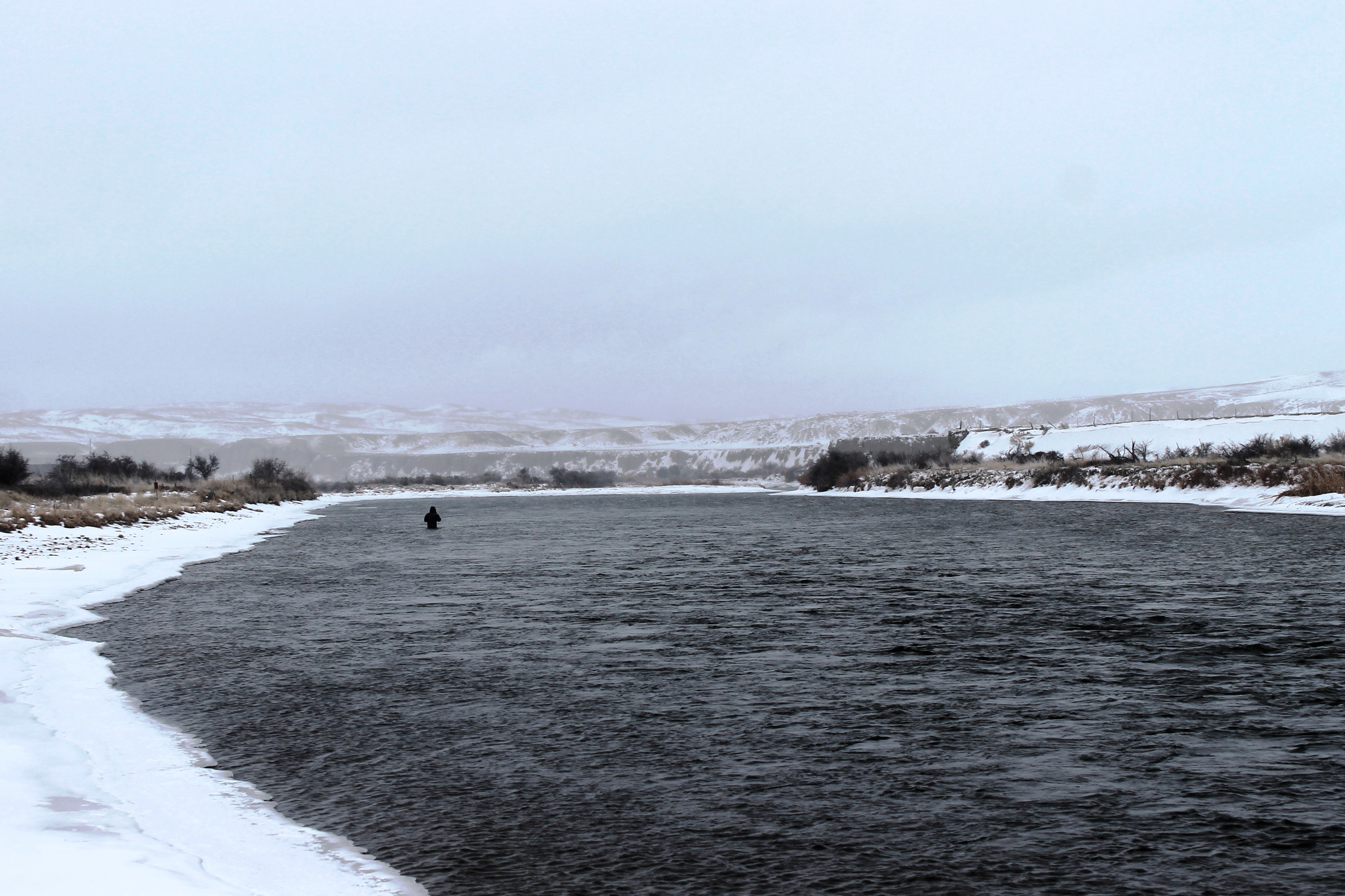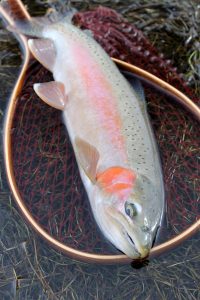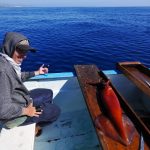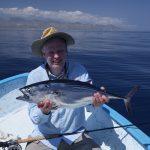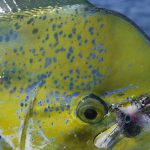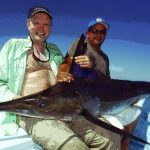Mark Boname’s Vanilla Bugger is a killer pattern that I have never fished. Chalk it up to stubbornness or stupidity, but I’ve never found bugger-style flies to be particularly lively on the swing. Don’t get me wrong, their stiff body hackles are certified-deadly on the strip, but under the constant pressure of a dead swing, buggers end up looking pretty wooden.
Curiosity finally got the best of me and I recently set out to see if I could steal borrow the best attributes of the VB (its size and color scheme) and combine them with the best characteristics of swing-style streamers (a tear-drop profile, flowing hackles, and a weapon of a stinger hook).
I began by converting the standard bugger over to a Pro Sport Fisher Nano Tube. The benefits of tubes are well-publicized; the most significant being they allow you to use the deadliest hook in the game: www.gamakatsu.com/fishing-hooks.php?pid=1014. I then added some “swimability” by lengthening the marabou tail, oversizing the collar and body hackles, and replacing the standard cone with a Pro Tube Ultra Sonic Disc. Last, to keep the fly swinging in “the zone,” I added a tungsten Raw Weight, which I hid between the body hackle and the collar.
I test drove this “new” variant last week using my Platinum 8wt Switch with 9′ of T-11, 4′ of 6lb Maxima to the Protubed VB, and 2′ of 6lb Maxima to a Kool Herc (white/dun/red). The results were impressive. While I couldn’t say for certain that those fish wouldn’t have just as readily grabbed a standard VB, the hook advantage of the Gamakatsu Octopus was undeniable. I went 7 for 7 with the Protubed VB and never once worried about the hook being thrown or bent. Confidence.
Protubed VB:
Tube: Pro Sport Fisher Nano Tube (clear) + Medium Pro Hook Guide (clear)
Tail: Marabou blood quills (cream or tan) + 2 strands of Midge Flash (pearl)
Body: Wool yarn (cream) + Whiting Farm Bugger Pack (golden badger) + wire rib (gold)
Weight: Pro Sport Fisher Raw Weight (med)
Collar: Whiting Farms Brahma Hen (golden straw)
Head: Pro Sport Fisher Ultra Sonic Disc (med; gunmetal)
Hook: Gamakatsu Octopus #6
A Protubed Thin Mint worked as well…
And, bycatch on the Herc…
